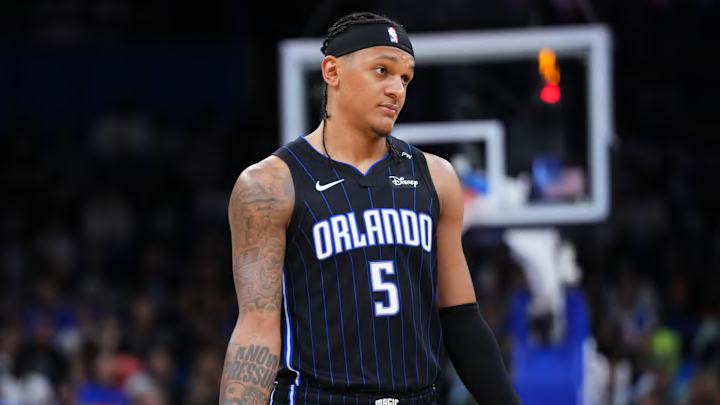Two trips around the world. That’s what the Orlando Magic’s travel schedule equates to for the 2025-26 NBA season.
Now, go ahead and guess how many other teams will match or exceed the 53,131 miles O-Town’s hoopers will spend in the air. If your answer is some variation of “zero,” “zilch,” “zip,” or “nada,” then congratulations are in order. You’re correct!
Chris Gunther of Charting Hoops dove into the number of miles each NBA squad will travel this coming season. The Magic, as it turns out, will earn the Associations’ ever-undesired “Most Frequent Flyer” title by spending 2,638 miles more in the air than any other franchise. Somewhat ironically, this gap is roughly the distance Orlando travels to meet the Portland Trail Blazers (2,526 miles), who will rack up the second-most miles, with 50,493.
As Gunther astutely points out, the Magic’s jetsetting tally is fueled largely by a trip to Europe. They are slated to play the Memphis Grizzlies in Berlin, and London. Yet, even with three days to get settled following their flight abroad, it’s fair to question whether such an itinerant odometer will adversely impact Orlando’s quality of play.
The Magic are young, but…
Nobody’s asking you to cry for professional basketball players, who earn millions of dollars, having to fly private across the country, and for a spell, internationally. They will survive.
Despite being among the teams expected to eclipse the 50-win benchmark, the Magic are also one of the league’s youngest squads. Their average player age of 24.8 ranks fourth, trailing only the Washington Wizards (24.4), Atlanta Hawks (24.3), and Brooklyn Nets (23.7).
Still, there may be clear downsides to large and long human beings spending so much time seated in not-so-roomy confines. As Gunther writes:
“Even without injuries, spending more time traveling seems to have a slight negative impact on a team’s winning percentage. The results are somewhat mixed, but there is some evidence over the last three seasons, that when teams don’t travel much in a given month, their winning percentage goes up compared to their season long average. Conversely, in the months when they are traveling the most, their winning percentage drops. Of course, there is the impact of playing at home vs on the road to factor in as well.”
Correlation does not automatically amount to causation. The NBA released a report in January 2024 that said they couldn’t find a link between players undergoing load management and a decreased risk for injury.
Orlando’s travel schedule is something to monitor
This isn’t a license to ignore how a lack of rest or excessive travel can impact performance. While this isn’t a perfect analog, look at the league’s average net rating last season relative to the amount of rest teams enjoyed, courtesy of Cleaning The Glass:
- Zero days of rest: -2.2
- One day of rest: 0.5
- Two days of rest: 0.6
- Three days of rest: 1.2
The Magic themselves have to be clocking this, even if only in the back of their mind. Paolo Banchero, Franz Wagner, and Jalen Suggs, among a handful of others, all missed significant time last year. Just four squads lost more value to injury during the regular season, according to BBall-Index.
None of this is ironclad proof of anything. Rest assured, though, teams in no way want to sit on the throne upon which Orlando is planted now.
